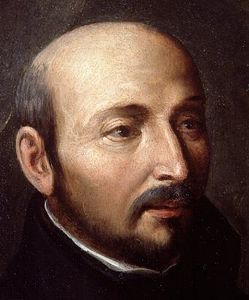A Quote by Charles Webster Leadbeater
If we love a person, we love him, and whatever he may do will not affect our love. It may cause us pain if he does evil, because we love him; it may cause us sorrow and suffering; but it cannot affect our love.
Related Quotes
God's love never ceases. Never. Though we spurn him. Ignore him. Reject him. Despise him. Disobey him. He will not change. Our evil cannot diminish his love. Our goodness cannot increase it. Our faith does not earn it any more than our stupidity jeopardizes it. God doesn't love us less if we fail or more if we succeed. God's love never ceases.
This may sound like heresy, but it is the greatest truth! It is more difficult to let God love us, than to love Him! The best way to love Him in return is to open our hearts and let Him love us. Let Him draw close to us and feel Him close to us. This is really very difficult: letting ourselves be loved by Him. And that is perhaps what we need to ask today in the Mass: 'Lord, I want to love You, but teach me the difficult science, the difficult habit of letting myself be loved by You, to feel You close and feel Your tenderness ! May the Lord give us this grace.
Grace is more than mercy and love. It super-adds to them. It denotes, not simply love, but the love of a sovereign, transcendent Superior. One that may do what He will. That may wholly choose whether He will love or no. Now God, who is an infinite Sovereign, who might have chosen whether ever He would love us or no; for Him to love us, this is Grace.
A good end cannot sanctify evil means; nor must we ever do evil that good may come of it. We are too ready to retaliate, rather than forgive, or gain by love and information. And yet we could hurt no man that we believe loves us. Let us, then, try what love will do: for if men do once see that we love them, we should soon find they would not harm us. Force may subdue, but love gains; and he that forgives first, wins the laurel.
A good end cannot sanctify evil means; nor must we ever do evil, that good may come of it... It is as great presumption to send our passions upon God's errands, as to palliate them with God's name... We are too ready to retailiate, rather than forgive, or gain by love and information. And yet we could hurt no man that we believe loves us. Let us try then what Love will do: for if men did once see we love them, we should soon find they would not harm us. Force may subdue, but Love gains: and he that forgives first, wins the laurel.
I will make love my greatest weapon and none on whom I call can defend against its force.
My reasoning they may counter; my speech they may distrust; my apparel they may disapprove; my face they may reject; and even my bargains may cause them suspicion; yet my love will melt all hearts liken to the sun whose rays soften the coldest clay.
I will greet this day with love in my heart.
We cannot know whether we love God, although there may be strong reason for thinking so; but there can be no doubt about whether we love our neighbor or not. Be sure that, in proportion as you advance in fraternal charity, you are increasing your love of God, for His Majesty bears so tender an affection for us that I cannot doubt He will repay our love for others by augmenting, and in a thousand different ways, that which we bear for Him.
God will never disappoint us… If deep in our hearts we suspect that God does not love us and cannot manage our affairs as well as we can, we certainly will not submit to His discipline. …To the unbeliever the fact of suffering only convinces him that God is not to be trusted, does not love us. To the believer, the opposite is true.
As adults, if our top priorities are constantly directed toward the acquisition of more and better worldly goods, it will not take long to increase our love in those directions. The purchase of a larger house or a nicer car or a more expensive boat may cause us to sacrifice our resources and develop an unwise love for these symbols of success and pleasure. We learn to love that which we serve, and we serve that which we love.
Just as God's love to us believers, his children, is unalterably the same, whatever may be the manifestations of that love; and as his peace with us is the same, however much our peace may be disturbed; so it is also with regard to our being in fellowship or partnership with him: it remains unalterably the same so far as God is concerned.
Whenever we think of Christ, we should recall the love that led Him to bestow on us so many graces and favors, and also the great love God showed in giving us in Christ a pledge of His love; for love calls for love in return. Let us strive to keep this always before our eyes and to rouse ourselves to love Him.


































